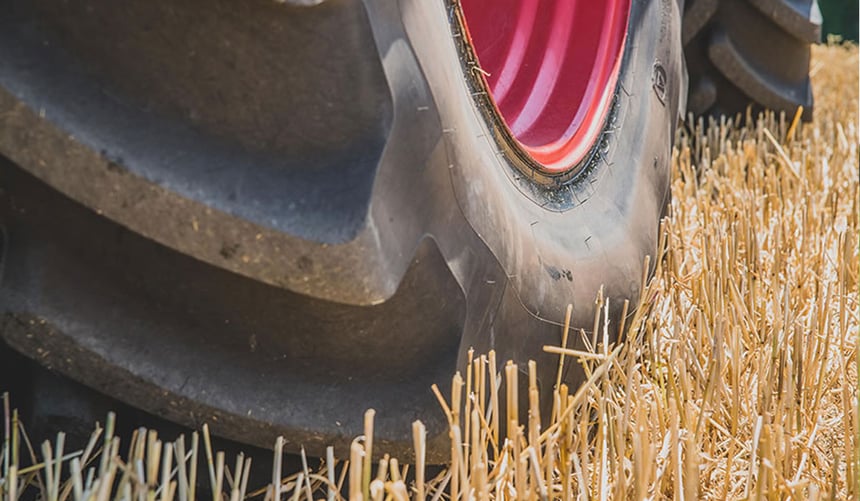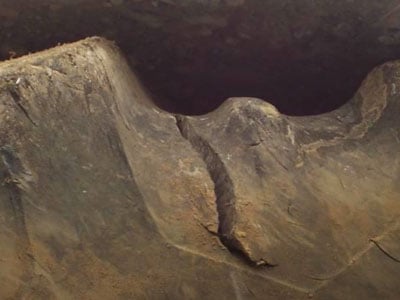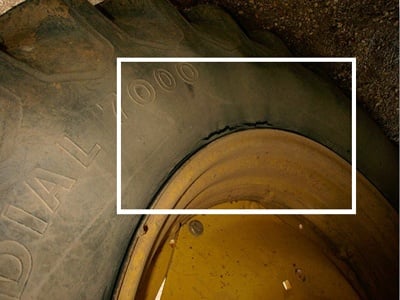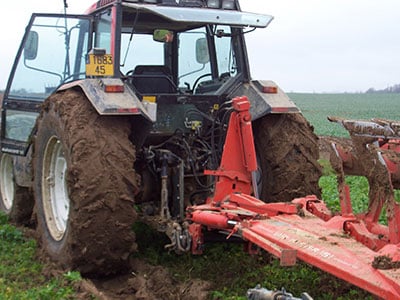It's such a great feeling when you search online and find new tractor tyres with 20% off the lowest price offered by your normal tyre distributor. Or maybe it makes you feel like he's been taking you for a ride all these years: you trusted him, but now that you've found a cheaper deal elsewhere you get the feeling he's been ripping you off, even after you told him about your money troubles. You may be right, but watch out for the signs that it's a trap...
 It's no secret that, when a tyre is cheaper, it's because the manufacturer has found a way to produce it for cheaper than what you're paying, either by quietly changing the structure (perhaps by getting rid of essential parts you can't see) or by replacing a high-end material with a low-end one.
It's no secret that, when a tyre is cheaper, it's because the manufacturer has found a way to produce it for cheaper than what you're paying, either by quietly changing the structure (perhaps by getting rid of essential parts you can't see) or by replacing a high-end material with a low-end one.
One thing you can be sure of – a manufacturer will never sell a product if they won't make any money from it. Some highly profitable Chinese factories excel at creating imitations of existing products that look the same but are 60 to 80% of the price of the original. Remember that their own goal is to manufacture a tyre that looks good, with no regard for its effectiveness or safety.

Not suitable for work requiring a high engine capacity
If you were looking to save money when it came to replacing your tyres, and you decided to go for a low-cost or budget agricultural tyre, the casing and the material used to make its sidewalls will not be designed to undergo excessive deformation, and will even be considered as fragile areas that are not supposed to ever be in contact with the ground.
When the tyres compress against the ground, the ends of the sidewalls that protrude beyond the tread come into contact with the ground and are subjected to the same impact and damage as the tread, but without the tread's protective thickness and structure. A rock, a root or a branch could cut through and suddenly puncture the tyre and immobilise your vehicle, with all the turnkey costs that would entail.
 If you reduce the pressure, you will also cause progressive wear and abrasion to the casing reinforcement and fold on the rim flange, due to the excessive movement and flex of the sidewall. The casing ply would quickly tear (see photo), and you would be forced to change your tyres again.
If you reduce the pressure, you will also cause progressive wear and abrasion to the casing reinforcement and fold on the rim flange, due to the excessive movement and flex of the sidewall. The casing ply would quickly tear (see photo), and you would be forced to change your tyres again.
Budget agricultural tyres usually have simpler designs, and to save money on materials the casing is often more rigid, requiring a higher inflation pressure to avoid damaging the sidewalls. This leads to a build-up of mud between the lugs when it's rainy, meaning the tyre loses grip and increases its rolling resistance and slip instead.

Cheap agricultural tyres have not undergone studies to ensure optimal performance in fields and on roads; the manufacturer compromises on costs so the tyre can do a little bit of both. It's therefore up to you to make up for this 'middle of the road' approach by always making sure the tyre's pressure is suited to the type of terrain it will be driving on.
Unfortunately, this type of tyre cannot go below 1.8 to 1.6 bar if the soil is loose, and would therefore sink into the ground more than a low-pressure tyre and cause substantial soil compaction.
To go further and increase the profitability of your farm, Bridgestone Agriculture offers you a very detailed free eBook that explains the essential role of the agricultural tire on your productivity.
The most people who have read this article have also read the following articles, which are listed below in order of popularity:
This information is intended only to make you aware of the technical and functional aspects of agricultural tires and their use. It does not allow you to make a judgment or a definitive conclusion on a given problem. Only your agricultural tire expert is able to make a technical assessment and take a final decision, case by case.

BRIDGESTONE EUROPE NV/SA
AG Department
Leonardo Da Vincilaan 1
1930 Zaventem | Belgium
Our regional office:
Athena Drive, Tachbrook Park
Warwick CV34 6UX
United Kingdom